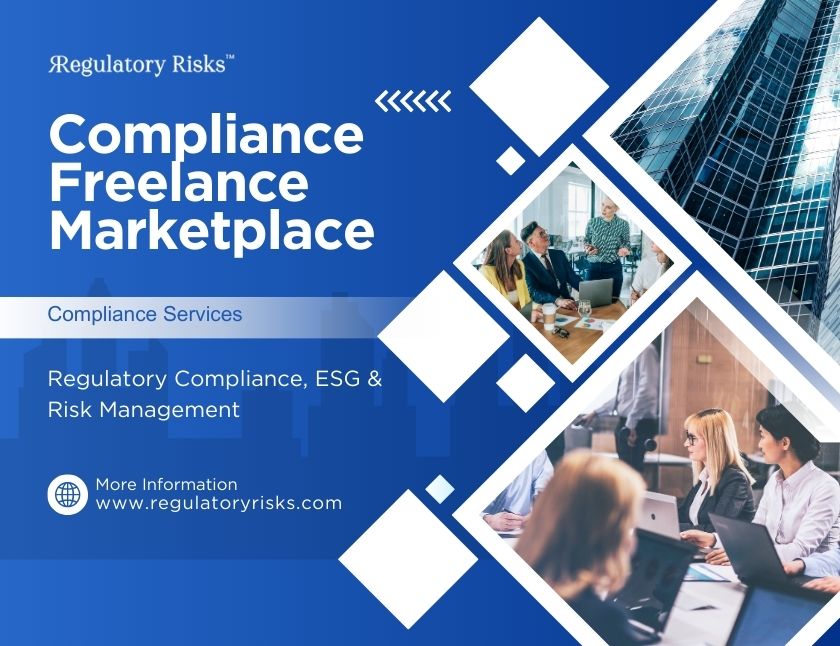The sudden collapse of Silicon Valley Bank (SVB) in 2023 was a major shock to the financial world. It serves as a potent reminder of the importance of effective risk management, especially for global cross-border SMEs in sectors like financial services, crypto, gaming, and technology platforms. This event highlights the need for robust risk management strategies when navigating volatile markets and complex regulatory environments.
In this article, we'll dissect the factors leading to SVB's downfall, explore the role of risk management consultants, and discuss how SMEs can protect themselves by leveraging operational and regulatory risk management services.
The Downfall of Silicon Valley Bank: What Went Wrong?
SVB was a key player in the tech startup ecosystem, providing banking services to numerous high-growth tech companies and venture capital firms. However, its collapse in early 2023 was due to several critical issues:
Overconcentration in the Tech Sector
SVB's business model heavily relied on tech startups and venture capital firms. This concentration led to rapid growth during the tech boom but also created a significant vulnerability when the tech sector faced a downturn. Diversification is a fundamental principle in risk management. By focusing on a single industry, SVB became overly exposed to its volatility, which significantly impacted its stability.
Liquidity Mismatch and Interest Rate Risk
SVB's risk management strategy was compromised by a liquidity mismatch. The bank invested heavily in long-term government bonds and mortgage-backed securities. When interest rates increased sharply in 2023, the value of these bonds fell, leading to significant unrealized losses. As tech firms, which were SVB's primary depositors, began withdrawing funds rapidly due to their own cash flow issues, SVB was forced to sell these assets at a loss, leading to a liquidity crisis.
Regulatory Compliance Gaps
SVB's rapid expansion outpaced its ability to adapt to evolving regulatory requirements. This created regulatory compliance gaps, as the bank's risk management framework was inadequate for its growing and complex operations. For SMEs, this serves as a reminder that as a business scales, its regulatory risk management strategies must also evolve to address increasing complexity.
Poor Communication and Crisis Management
When the crisis unfolded, SVB's communication strategy was lacking. The lack of clear and timely messaging contributed to a loss of confidence among depositors, accelerating the bank run. Effective crisis management and communication are essential components of risk management, and SVB's failure to reassure its stakeholders only exacerbated its problems.
Key Lessons for SMEs: The Importance of Robust Risk Management
SVB's collapse offers several important lessons for SMEs, particularly those in high-risk sectors:
Diversification is Key
Overconcentration in a single industry or client base can be risky. SMEs should focus on diversifying their revenue streams, customer bases, and investments. Diversification reduces the impact of downturns in specific sectors and enhances long-term resilience. This strategy helps spread risk and can prevent the kind of vulnerability that SVB experienced.
Engage Risk Management Consultants
Hiring risk management consultants can provide valuable expertise in identifying and mitigating potential risks. These consultants offer specialized knowledge in operational risk management services, helping businesses develop strategies tailored to their specific needs. For SMEs that lack in-house risk management teams, engaging consultants through freelance marketplaces can be a cost-effective way to access expert guidance.
Monitor and Adapt to Regulatory Changes
As companies grow, their regulatory obligations become more complex. Staying informed about evolving regulations requires a proactive approach. Regulatory compliance consultants can help SMEs navigate these changes by providing up-to-date insights and assisting with the implementation of necessary controls. This ensures that businesses remain compliant as they expand.
Liquidity and Interest Rate Management
Understanding and managing liquidity risk and interest rate exposure is crucial for businesses of all sizes. SMEs should regularly stress-test their liquidity positions and consider strategies to hedge against interest rate fluctuations. Effective cash flow management, combined with well-defined contingency plans, can help prevent liquidity crises similar to those experienced by SVB.
Effective Crisis Management and Communication
Clear and timely communication during a crisis is vital. SMEs should develop crisis management plans that include communication protocols, stakeholder engagement strategies, and rapid response measures. Risk management consultants can assist in creating these frameworks and conducting drills to ensure businesses are prepared to handle crises effectively.
The Role of Freelance Marketplaces in Risk Management
For SMEs, accessing top-tier risk management expertise doesn't necessarily require building an in-house team. Freelance marketplaces offer a flexible and cost-efficient way to hire compliance officers and risk management consultants on a project basis. These platforms enable businesses to find professionals with specific expertise, whether in regulatory risk management, operational risk management, or crisis management.
Leveraging freelance marketplaces allows SMEs to tap into a global talent pool, accessing skills and expertise that may be difficult to find locally. Whether you need ongoing advisory services or a one-time risk assessment, freelance consultants provide scalable solutions that fit your business needs and budget.
Looking Forward: Strengthening Your Risk Management Strategy
The collapse of Silicon Valley Bank underscores the need for robust and adaptable risk management strategies. For SMEs, effective risk management is crucial to avoid severe financial losses, reputational damage, and regulatory penalties. By applying the lessons learned from SVB's downfall and engaging the right expertise, SMEs can build resilient risk management frameworks that support their growth.
Risk management consultants play a critical role in helping businesses navigate complex risk environments. They offer expertise in designing comprehensive risk management frameworks and providing regulatory compliance advice. Staying proactive, adaptable, and well-informed can help SMEs avoid pitfalls and position themselves for sustainable success.
Conclusion: The Value of Proactive Risk Management
The events surrounding Silicon Valley Bank's collapse serve as a powerful reminder of the importance of risk management for businesses of all sizes. For SMEs in dynamic sectors like financial services, crypto, and technology, comprehensive operational and regulatory risk management is essential.
By engaging experienced risk management consultants and utilizing freelance platforms to hire experts, SMEs can access the necessary expertise without incurring high overhead costs. As the regulatory landscape continues to evolve, proactive risk management remains the key to thriving in a complex business environment. For those seeking to strengthen their risk management strategies, staying informed and seeking external expertise are crucial steps in building a resilient and compliant business.




